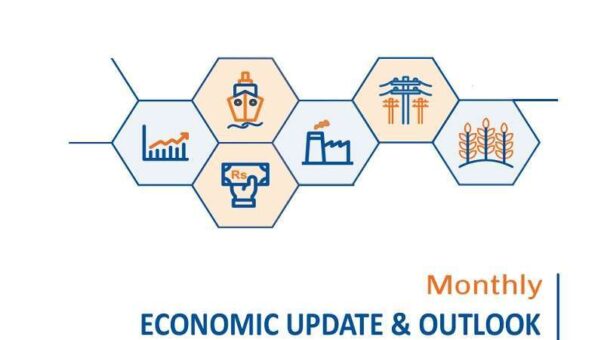Karachi, August 30, 2024 – The Finance Ministry has projected a decline in Pakistan’s headline inflation, forecasting it to fall within the range of 9.5-10.5% for August 2024. This trend is expected to continue, with inflation anticipated to ease further to 9-10% by September 2024.
In its latest ‘Monthly Economic Update and Outlook,’ the Finance Ministry highlighted a significant improvement in economic indicators. The report noted that inflation, which was recorded at 11.1% year-on-year in July 2024, has decreased from 12.6% in June 2024. This drop marks the lowest Consumer Price Index (CPI) figure since November 2021, when it was 11.5%, according to the Pakistan Bureau of Statistics (PBS).
The Finance Ministry attributes the easing inflation to several stabilizing factors in the economy. External indicators such as exports, imports, and worker remittances are showing positive trends. The report estimates that exports will remain between $2.5-3.2 billion, imports will range from $4.5-5.0 billion, and remittances will fall between $2.6-3.3 billion in August 2024.
The Finance Ministry emphasized that the stable outlook for the external sector depends on a steady exchange rate, renewed domestic economic activities, improved agricultural output, lower domestic and global commodity prices, and increased foreign demand. These factors are expected to contribute to a more stable economic environment.
On the industrial front, the Ministry of Finance anticipates that the Large Scale Manufacturing (LSM) sector will continue its positive growth trajectory throughout FY2025. This growth is attributed to improved external demand, a stable exchange rate, declining inflation, and a more accommodative monetary policy.
Regarding agriculture, the Ministry highlighted that the kharif 2024 production will largely depend on specific weather patterns affecting crops. The recent and ongoing rainfall could have both beneficial and adverse effects on rice, sugarcane, cotton, fodder, and vegetables, provided the rains do not lead to significant damage to farmlands.
Overall, the Finance Ministry’s report suggests a cautiously optimistic outlook for Pakistan’s economy, with expectations of continued improvements in inflation and other key economic indicators.
